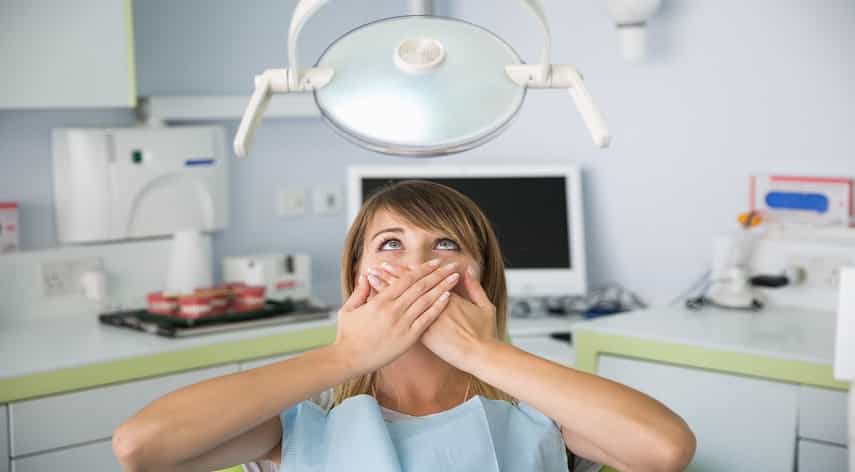How to Prevent Dental Anxiety

Dental anxiety is a very common problem for people who go to the dentist. When the syringe is first used, or the dental tools, people will react frantically, often struggling to maintain control of their breathing.
However, it’s important to note that there is a level of anxiety that needs to be manageable. There are methods that can be tried to help you remain composed during your appointment.
We want to help you feel more comfortable going to the dentist. Let’s explore how you can prepare yourself!
Table of Contents
ToggleCauses of Dental Anxiety
Dental anxiety causes can be attributed to factors such as dental fear and misunderstanding of dental procedures, fear of pain and needles, fear of judgment or embarrassment, inconvenience or financial implications, and general lack of knowledge or understanding.
Psychological factors such as past negative experiences can also contribute to dental anxiety. For some, anxiety may have been conditioned and built up due to stories of dental experiences passed on to them or strong memories of fear-provoking dental experiences.
Speak With Your Dentist About Your Concerns
Many people experience fear and anxiety when it comes to dental procedures. So it is important to feel comfortable communicating your concerns to your dentist.
Try to share your specific fears, as this will help your dentist determine the best course of action if you want sedation for a dental procedure. You can also ask if is sedation safe for children to ease their anxiety.
During your appointment, ask questions that might put you at ease, such as whether audio or video distraction techniques are available.
Be sure to let your dentist know of any prior bad experiences you may have had that may be causing you to be anxious. Communication is key, and talking openly will help your dentist craft the best treatment plan for you.
Prepare for Your Appointment
It is important to prepare for your appointment with your dentist if you want to prevent dental anxiety. One of the best ways to do this is to ask your dentist questions.
Learning more about what they will do during your appointment can help you feel more confident and relaxed. You should also inform the dentist of any medical conditions you may have, including medications that you take and any allergies.
This can help the dentist know how to treat you better. Knowing and understanding the costs associated with the procedure can help you feel more at ease. Make sure to read reviews on the dentist you are going to for added comfort.
Establish Healthy Habits
Start by getting into a regular brushing and flossing routine. Do this at least twice a day, and make sure to brush your tongue and cheeks to remove food particles.
By regularly cleaning your teeth, you reduce the accumulation of plaque and tartar, which can lead to more serious dental issues. Eat nutritious meals and limit sugary snacks in between meals.
Refrain from eating hard and chewy foods, as they can damage your teeth. Make it a priority to visit your dentist at least twice a year for regular checkups and cleanings.
Prevent Your Dental Anxiety Starting Today
Dental anxiety is real and can be prevented. Seek professionals to discuss dental anxieties and their causes. Acknowledge and address your own anxieties using the strategies discussed above, such as breathing and relaxation techniques.
Don’t forget to brush and floss regularly, seeing a professional twice a year to maintain your oral health! Take the first step today to overcoming your dental anxieties and improving your oral health!
Did you find this article helpful? Visit more of our blogs!
Recommended For You
Spread the loveHealth screening is a vital part of preventive healthcare which plays a crucial role in the maintenance of
Spread the loveSexual health is an essential aspect of personal well-being. If you’re based in London and need STI testing,
Spread the loveIn today’s fast-paced world, managing your health effectively is more important than ever – especially for those of



